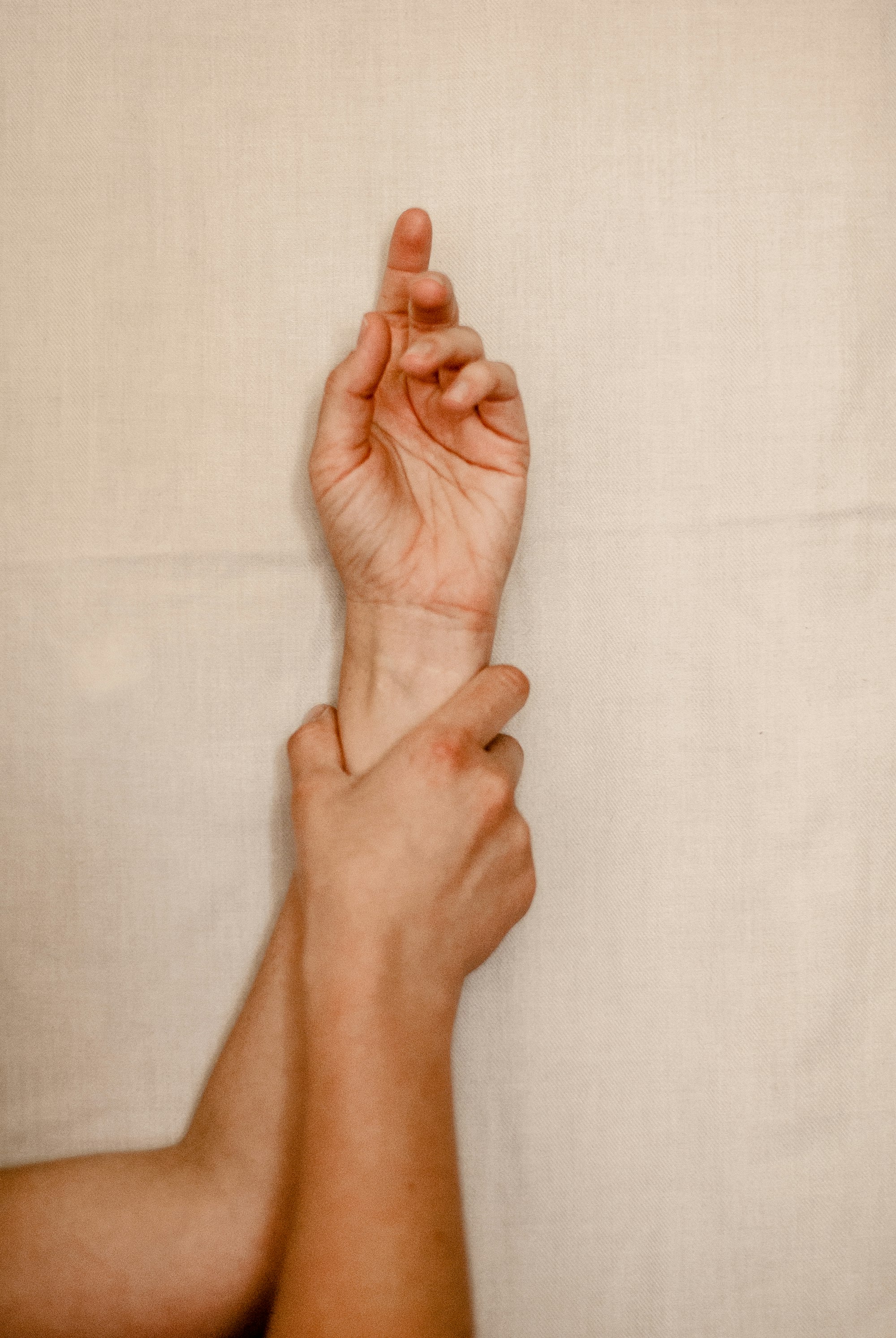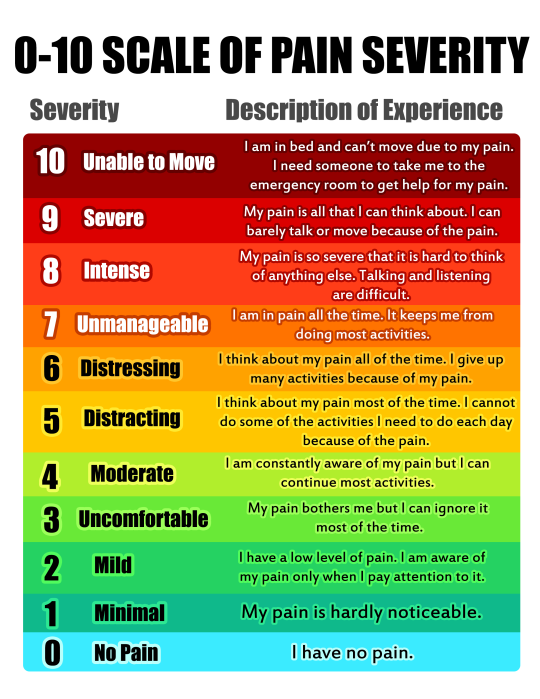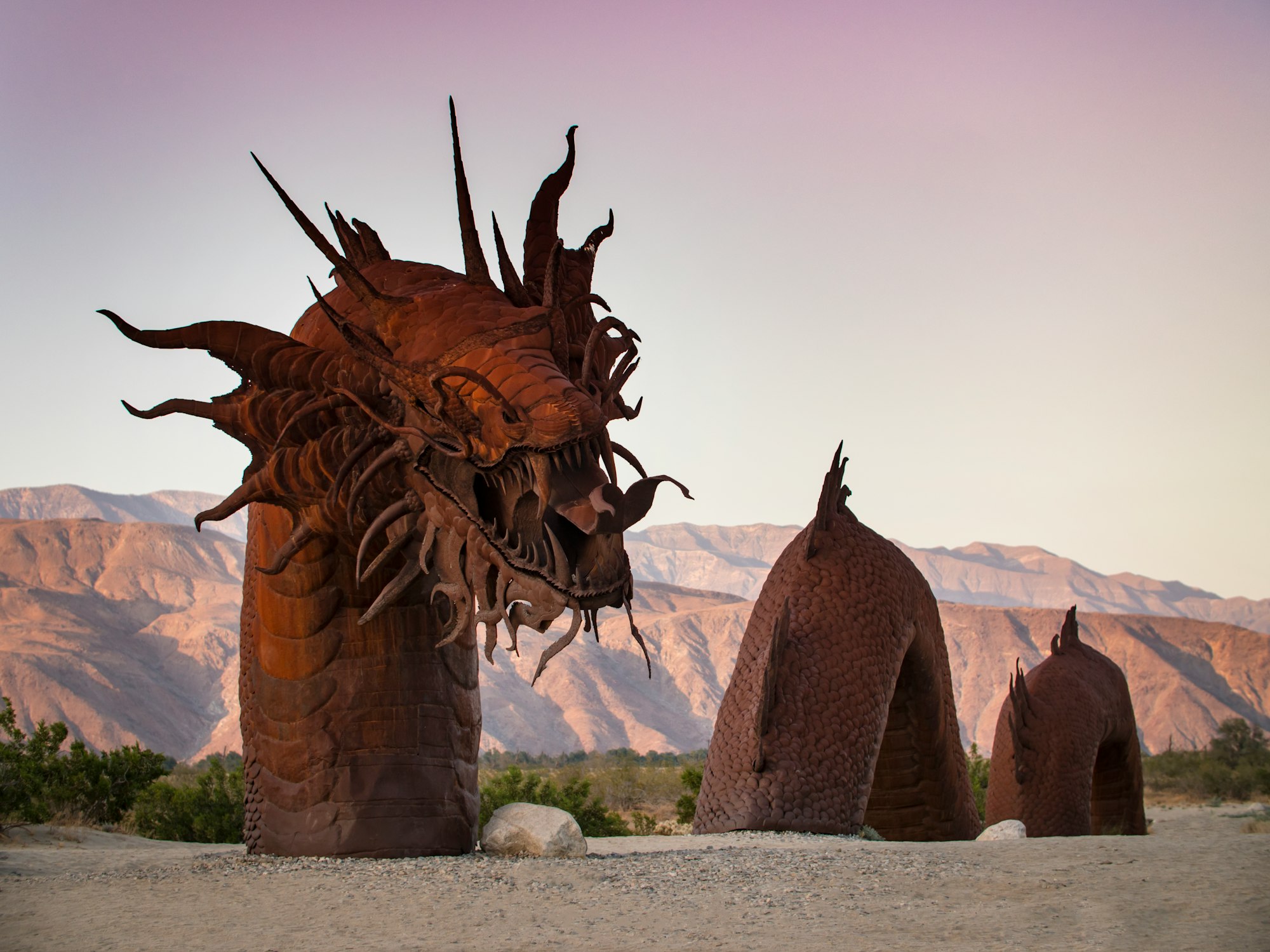
It was nerve pain. I had no idea. The level of pain and the constancy of it drove me nearly insane.
Surgery on the hands is a challenging business. My surgeon is excellent; people wait for months to see him. I love the guy's humor, warmth and bedside manner. By the time we got around to removing the CMC joint on my left hand, he'd already done two shoulder surgeries on me. I trusted him.
Easy, I thought.
I had the CMC joint removed on July 18th. There followed multiple complications, mostly due to unrelenting pain of a sort that I've never had to manage minute-to-minute without an end in sight. I now had a bionic thumb, and the healing process turned brutal.
It was instructive.
Let's talk.
On the back of your doctor's door is often a pain chart. You're asked, normally, what your level of pain is. You're given up to a ten, which I've only seen in action one time. My father had some kind of quirky but terrible neurological pain called tic douloureux which would strike him from the forehead across the top of the head. No warning, and no clue if it would stop.
He nearly laid down across the train tracks which bordered our property. The doctor told us it was one of the worst pains known to man. I believe it. I had to sleep next to my father's bed in the terror he would head out to behead himself.
He was finally given a medication which controlled it enough so that he could once again function without living in abject terror of another attack.
Here is a typical pain scale you can find on the back of a doctor's office door:

You're advised not to exaggerate, as in telling the doctor you're a 12 on this scale. You won't be taken seriously. Since I am guilty of exaggeration, when it comes to this, I am very careful.
That said. I have experienced level 8 pain at least three times: kidney stones, a broken back (eight breaks) and a smashed pelvis. Definitely got my attention. The difference was that I could get relief by lying down or taking medication or both. I could sleep.
I've also had migraines since 1974. Hospital quality, up to 25 a month. I know pain. Intimately. Those used to get up to a seven, maybe worse, but nowadays there are meds. There is relief.
But this was something else again.
The pain in my hands was a level 8. No exaggeration. I was crying, sobbing, unable to sleep, eat, think or function. This went on for about four or five days. By the time I got in to see my surgeon I had been prescribed hydromorphone, which was useless. I had tried ice, heat, anything. Exhausted, and sobbing uncontrollably, I stumbled into their offices about as desperate as I have ever been.
I finally got Gabopentin, for nerve pain. That allowed me some sleep, which is the first true step to healing. And that sleep finally allowed me the sanity to start the process back to health and mobility.
I've had further complications, but the two-week journey down Pain Road was largely over. Knowing that I have more surgeries and another on my right hand makes me glad to know what to expect. I'll be ready.

But here's why I am so grateful.
I'm not just grateful for the fact that I have relief. I am immensely grateful for the perspective. I told my surgeon that I now have a full-on experience of what it's like for those who must live with such pain and for whom there is no relief.
Whether that's because of a unique ailment, as with my father, or someone can't afford the medications, or because of some idiosyncratic issue which has rendered their doctors unable to give them relief, they are imprisoned with a level of pain which most of us would find incomprehensible.
Medium commenter David Martinez wrote me a note speaking to how, as a Marine, he has been using a cane and dealing with constant pain since he left the Marines at 25. As a fellow veteran, his story speaks to me directly. I see the halls of the VA filled with young men and women whose lives have been sideswiped, as mine was, by circumstances they didn't willingly sign up for when they raised their hands to swear fealty to our country.
Some have had to fight hard for any kind of care at all, which for those willing to sacrifice body and mind for our freedoms is a whole other kind of insult. I got it, too, but I was able to slog my way forward. Many aren't. The VA is uniquely good at creating more and more roadblocks to good care and pain management, using the argument that too many are gaming the system.
My social media guru opined that it's likely that perhaps five percent of all vets are trying to truly game the system. I have no idea. However, like all idiot organizations, the knee-jerk way to handle bad actors is to make everyone else pay for the few.
So, far too many are left on the sidelines, without adequate care or relief. I salute, in every way possible, that sacrifice, and feel deeply the level of frustration that people suffer when trying to get enough relief so that there is a way forward.
I am gifted with a whole other level of empathy and compassion. Such perspectives are paid for. They do not come without suffering. Real payment. For that ability to understand how pain twists us all out of proportion, makes us crazy angry, nearly out of our minds, I am beyond grateful. I see now. Nothing I've been through before compares, for with the exception of the migraines, the bad accidents were largely from choosing to do sports I loved.
I had signed up for potential bloody messes. I've turned those into my funniest stories. Part of the adventure. Yes, I'm certifiable. But those are my choices.
This was different. My surgeon explained that such pain from this surgery is very rare. Oh well. Each body is different, and as with those who write me about their experiences, there is a norm, and then there is our body, and how we respond.
The cost of unrelenting pain
David is turning forty soon. He wrote me that he has often felt old, in a body which was crippled too soon by war and ongoing pain. I found his words brave, his willingness to stay in the game courageous.
Because this:

Watching my father some fifty years ago, reading David's comments, I understand better now than ever before the challenge faced by those who deal with pain of the sort which reduced me to a blubbering mess in eight days.
The tic douloureux reduced my big strong dad to a puddle. This was a man I watched slice nearly his entire finger off with a very sharp blade while cutting pork chops. He didn't lose a step. He put the knife down, got a paper towel, put the finger tip back on, wrapped it, got another towel, and then drove the both of us to the ER where he sat quietly until his turn. Not a word. Stoic as hell. I get mine from Daddy. But that nerve pain undid him.
Like my father, I am damned good at managing pain. After I broke my back I found a way to deal with it long enough for a long, bumpy van ride to a distant hospital in Kazakhstan.
After I smashed my pelvis (AND my elbow AND my wrist AND my head, it was quite a spectacular fall) I walked up three flights of stairs where I sat in a pool of blood, laughing -yes, laughing- until the EMTs arrived.
I may be blessed with a fair bit of badassery, but this pain, in a hand no less, had me on my knees. I suddenly better understood my father. And a whole lot of other folks for whom such intense pain is a way of being.
The other day my surgeon and occupational therapist met to discuss progress. I am already well ahead of the recovery curve, and mobility is coming back fast as I am happy to push the PT. The sooner I heal, the faster I can sling weights. I am being careful, as I would prefer not to wake up the sleeping monster in my wrist.
With any luck, like the Loch Ness Monster, it is well below the surface, sleeping forever.

I'm lucky. We put the monster to sleep. For others like David, the monster is everpresent.
I needed, and got, good people who took mercy on me and cared enough to get me the right meds and care to keep me upright, smiling and back on the road to both sanity and health.
Too many of us don't have that, not only in the VA system but because the American Health System (an oxymoron if there ever was one) doesn't know how to deal with chronic pain. I sure couldn't. And yet people find a way.
We don't understand the battles such people face each day, so enamored are we with our petty slights and political battles and filters to make us symmetrical. For too many, just getting out of bed is worthy of a St. George moment.
Compassion is a fine thing. I have it now. And for that, I am deeply, humbly grateful.

Dear Walkabout Saga Reader:
If my work appeals to you, may I kindly invite you to consider joining those Patreon supporters whose generosity keeps the gas in my tank as it were. There are many more of you reading, which I appreciate very much. However as with National Public Radio, many more read without supporting, and I am asking you to consider offering the cost of a coffee to help me do more than just keep the lights on. That said, if you find value in my writing, and are so inclined, I'd be grateful for what support you can give. If you know others who could benefit from what I produce here, please let them know.
My purpose is to Move People's Lives. I can do more of that with your help.
Thank you.
You can explore that option here.
However you decide to partake of my writing, again, thank you.

Comments powered by Talkyard.